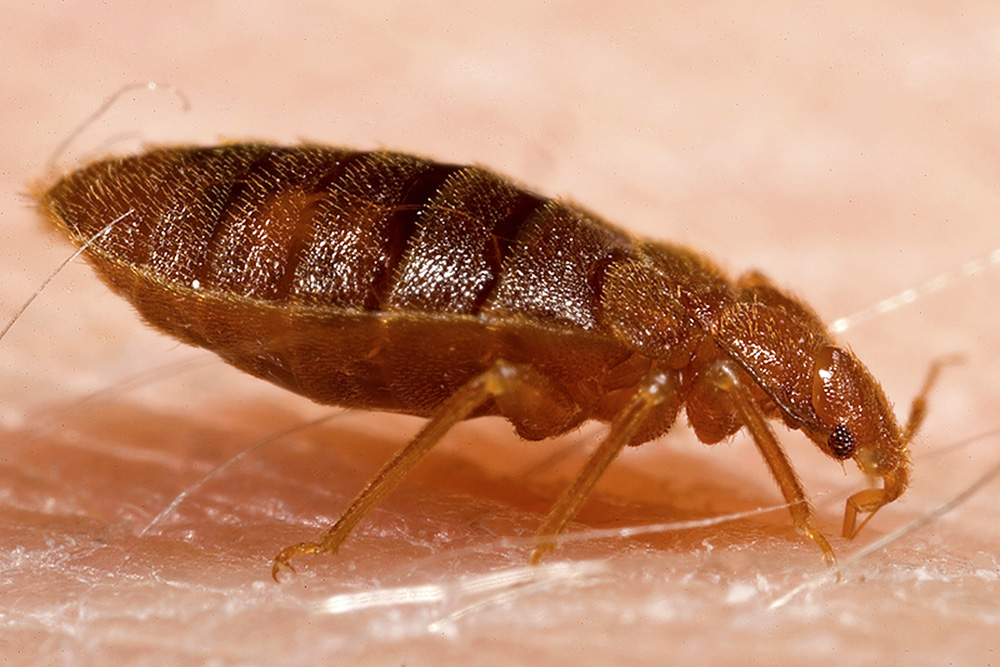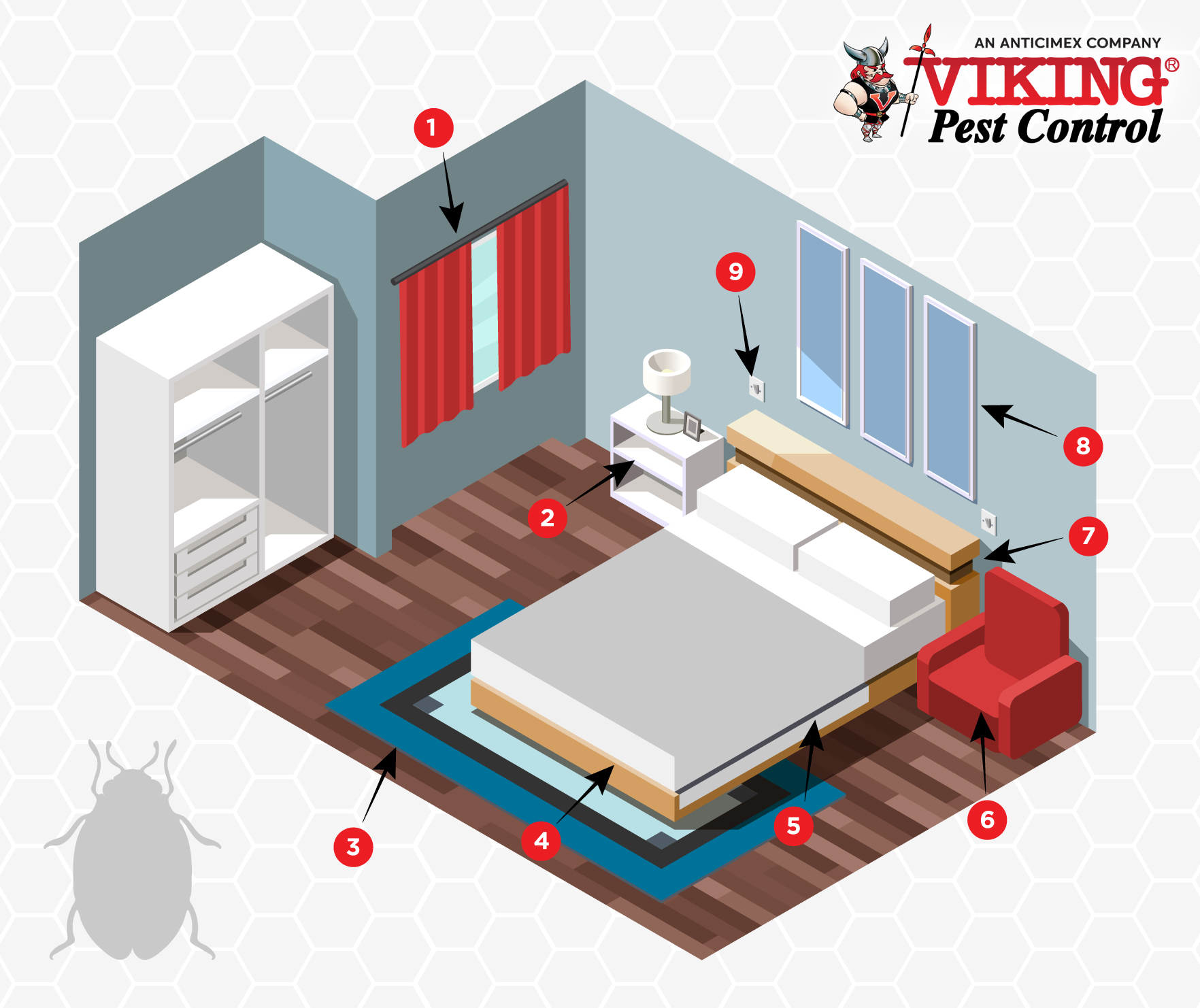A Malfunction of the Numerous Kinds Of Bug Control Solutions
In the realm of pest control, a plethora of techniques exist to deal with the presence and deal with of unwanted creatures. From the conventional use chemical pesticides to a lot more ingenious organic control remedies, each strategy supplies distinct benefits and restrictions. As we browse with the diverse landscape of insect control options, comprehending the complexities of each method comes to be extremely important in determining one of the most efficient program of activity. Keep tuned as we check out the nuanced world of parasite control strategies and find just how each type plays an one-of-a-kind duty in securing our settings.
Chemical Pesticides
Chemical chemicals are generally utilized in insect control to effectively remove a large range of insects and other bugs. These pesticides work by targeting the nerves of the pests, interrupting their typical features, and ultimately resulting in their death. Using chemical pesticides has actually been a staple in the insect control industry for years as a result of their effectiveness and quick outcomes.

Nevertheless, it is vital to make use of chemical pesticides with care as a result of their possible hazardous results on the atmosphere and non-target types. Improper application or overuse of these chemicals can cause pollution, damage to useful bugs, and resistance growth in parasite populaces. For that reason, it is critical to comply with security standards and regulations when utilizing chemical pesticides for bug control.
Biological Control Techniques
Considering the prospective environmental impacts and threats related to chemical pesticides, organic control techniques provide an even more sustainable strategy to managing bug populaces. Biological control entails the use of all-natural opponents, such as virus, parasites, and predators, to reduce pest populaces. This method is typically a lot more targeted, impacting just the certain pest varieties while reducing damage to valuable pests, humans, and the atmosphere.

One benefit of biological control is its lasting effectiveness. As soon as developed, all-natural opponents can assist control pest populations continually without the need for duplicated applications of chemicals. In addition, organic control is commonly extra cost-efficient and can help reduce chemical resistance in parasite populaces gradually. On the whole, organic control methods provide a eco pleasant and lasting remedy to pest administration.

Mechanical Parasite Control
Mechanical bug control involves the physical control or removal of insects to handle their populaces successfully. This technique is usually utilized combined with other bug control methods for thorough parasite management. One usual example of mechanical insect control is using catches to capture pests or rats. These catches can be set up in critical areas where pests are understood to dwell, aiding to minimize their numbers.
An additional mechanical technique is making use of obstacles such as internet, fences, or displays to obstruct insects from entering details locations. By physically avoiding bugs from accessing a place, the possibility of invasions mice or damages can be dramatically decreased. Additionally, hands-on approaches like handpicking bugs off plants or structures can be effective for smaller-scale invasions.
While mechanical insect control approaches can be labor-intensive, they offer a non-chemical alternative that can be eco-friendly and lasting. By targeting insects directly, mechanical control strategies can aid maintain pest populaces in check without depending on pesticides.
Natural Solutions
Making use of all-natural solutions for pest control offers rodent control a eco-friendly and lasting approach to handling bug populaces without resorting to chemical treatments. All-natural remedies entail making use of compounds derived from plants, minerals, or other naturally occurring sources to discourage or remove parasites.
Additionally, vital oils such as tea tree oil or neem oil have insecticidal residential or commercial properties that can properly manage parasites while being risk-free for the setting. Another natural remedy is presenting useful insects like ladybugs or hoping mantises to your yard to exploit unsafe pests. By incorporating these natural remedies right into pest administration strategies, individuals can minimize their reliance on synthetic chemicals and promote a much healthier, more well balanced ecological community.
Integrated Parasite Monitoring
Integrated Parasite Management (IPM) is a detailed method that combines numerous approaches to effectively regulate pest populaces while minimizing risks to human health and wellness and the atmosphere. IPM involves the assimilation of multiple parasite control techniques such as organic control, habitat control, adjustment of cultural practices, and the use of resistant plant selections. By making use of a mix of these methods, IPM aims to decrease reliance on chemical pesticides, which can have unfavorable influence on environments and human health.
One key element of IPM is the emphasis on prevention. By implementing measures to prevent parasite problems prior to they happen, such as maintaining correct hygiene and securing access factors, the demand for responsive insect control procedures is reduced. Surveillance and routine inspections play an essential role in IPM, enabling for very early discovery of bug concerns and timely treatment.
Final Thought
In final thought, the numerous kinds of bug control solutions offer a range of options for effectively taking care of parasite problems. Biological control approaches use all-natural predators to manage insects. Integrated Pest Monitoring combines multiple techniques for an alternative technique to pest control.
Chemical chemicals are commonly used in pest control to effectively get rid of a large range of pests and other bugs.Mechanical insect control involves the physical control or elimination of parasites to handle their populaces effectively (Kings exterminator cincinnati).Using all-natural treatments for pest control uses a sustainable and eco-friendly strategy to handling pest populations without resorting to chemical interventions.Integrated Insect Monitoring (IPM) is an extensive technique that combines various methods to effectively control pest populaces while lessening threats to human health and wellness and the atmosphere.In conclusion, the various kinds of bug control solutions use an array of choices look at this web-site for properly handling insect invasions